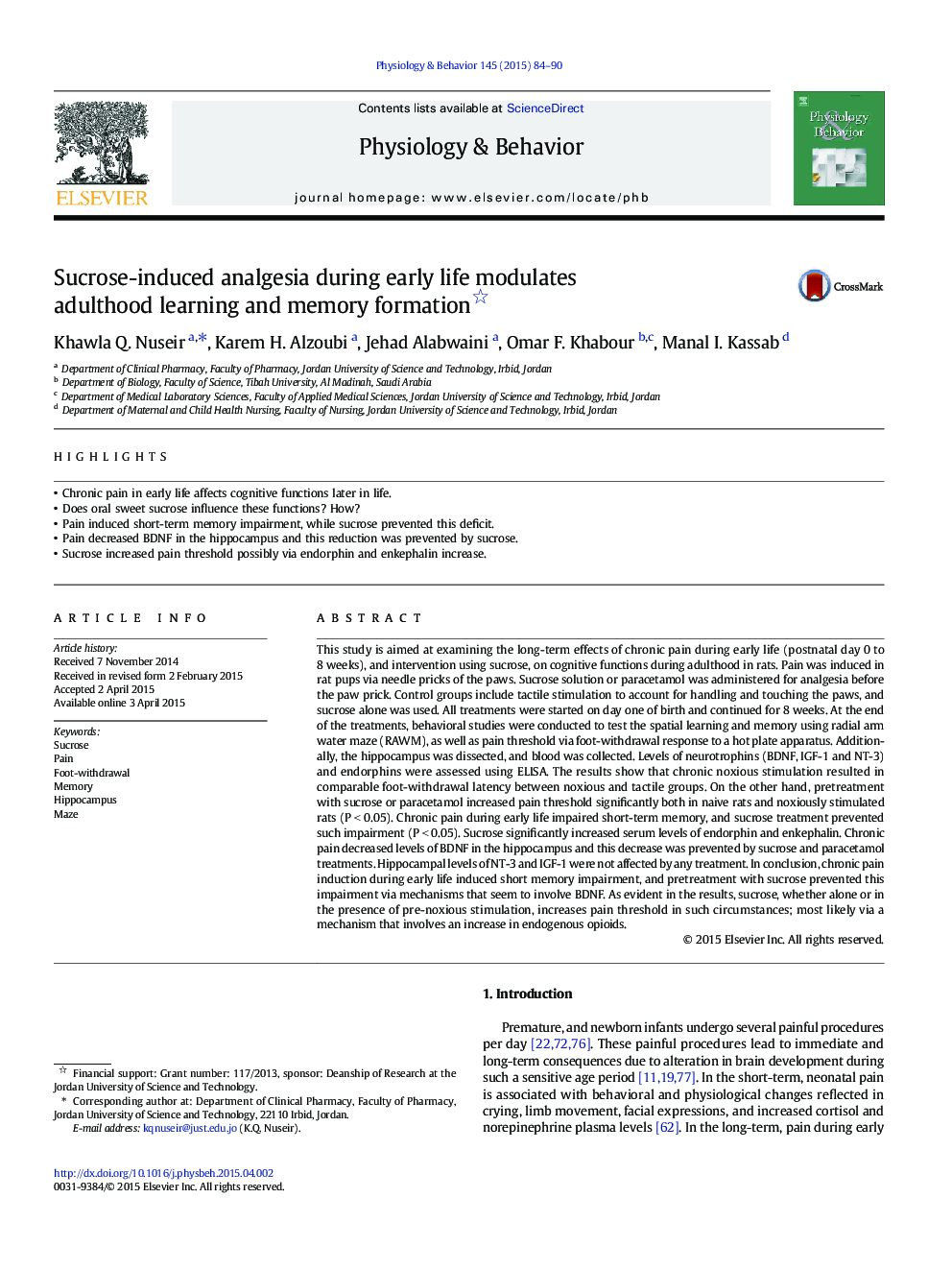| کد مقاله | کد نشریه | سال انتشار | مقاله انگلیسی | نسخه تمام متن |
|---|---|---|---|---|
| 2844121 | 1571172 | 2015 | 7 صفحه PDF | دانلود رایگان |
• Chronic pain in early life affects cognitive functions later in life.
• Does oral sweet sucrose influence these functions? How?
• Pain induced short-term memory impairment, while sucrose prevented this deficit.
• Pain decreased BDNF in the hippocampus and this reduction was prevented by sucrose.
• Sucrose increased pain threshold possibly via endorphin and enkephalin increase.
This study is aimed at examining the long-term effects of chronic pain during early life (postnatal day 0 to 8 weeks), and intervention using sucrose, on cognitive functions during adulthood in rats. Pain was induced in rat pups via needle pricks of the paws. Sucrose solution or paracetamol was administered for analgesia before the paw prick. Control groups include tactile stimulation to account for handling and touching the paws, and sucrose alone was used. All treatments were started on day one of birth and continued for 8 weeks. At the end of the treatments, behavioral studies were conducted to test the spatial learning and memory using radial arm water maze (RAWM), as well as pain threshold via foot-withdrawal response to a hot plate apparatus. Additionally, the hippocampus was dissected, and blood was collected. Levels of neurotrophins (BDNF, IGF-1 and NT-3) and endorphins were assessed using ELISA. The results show that chronic noxious stimulation resulted in comparable foot-withdrawal latency between noxious and tactile groups. On the other hand, pretreatment with sucrose or paracetamol increased pain threshold significantly both in naive rats and noxiously stimulated rats (P < 0.05). Chronic pain during early life impaired short-term memory, and sucrose treatment prevented such impairment (P < 0.05). Sucrose significantly increased serum levels of endorphin and enkephalin. Chronic pain decreased levels of BDNF in the hippocampus and this decrease was prevented by sucrose and paracetamol treatments. Hippocampal levels of NT-3 and IGF-1 were not affected by any treatment. In conclusion, chronic pain induction during early life induced short memory impairment, and pretreatment with sucrose prevented this impairment via mechanisms that seem to involve BDNF. As evident in the results, sucrose, whether alone or in the presence of pre-noxious stimulation, increases pain threshold in such circumstances; most likely via a mechanism that involves an increase in endogenous opioids.
Journal: Physiology & Behavior - Volume 145, 1 June 2015, Pages 84–90
